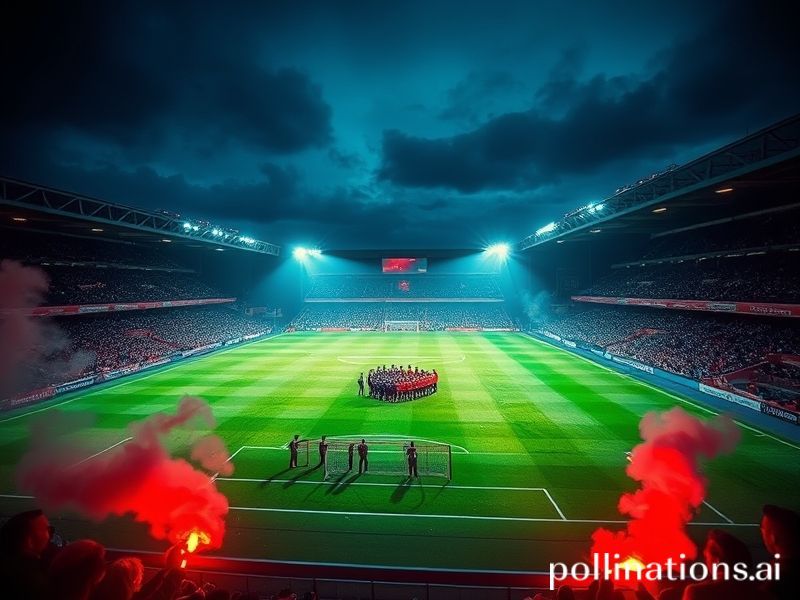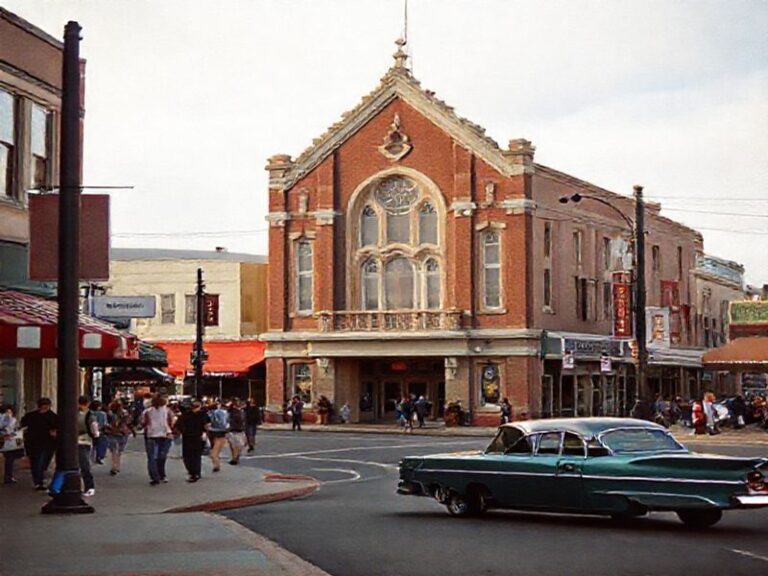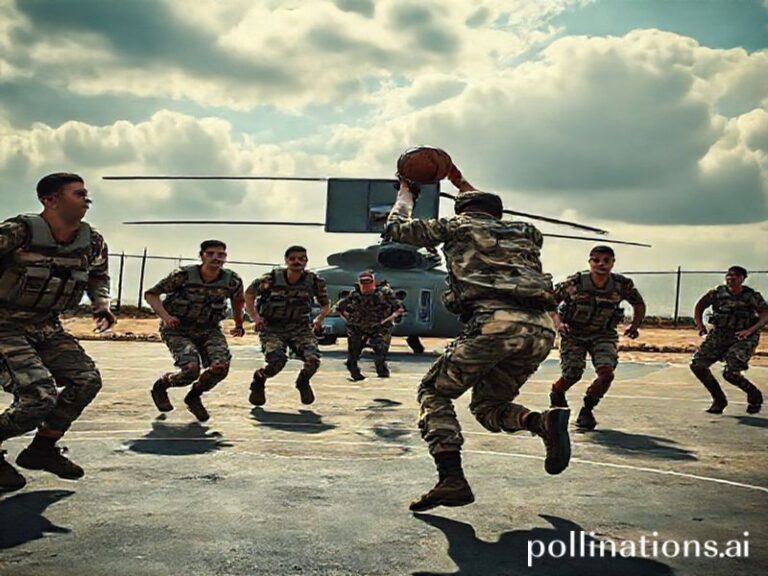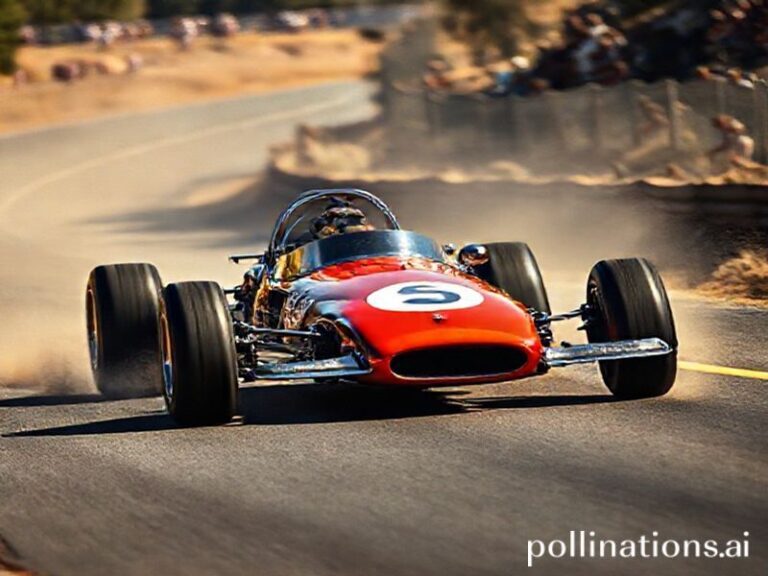Merseyside Derby Goes Global: How Liverpool vs Everton Became the World’s Favorite Identity Crisis
LIVERPOOL, England — In a city where everyone claims to be Irish on St. Patrick’s Day and half the population swears it voted for Liverpool in the Brexit referendum it actually lost, the 244th Merseyside derby unfolded last Sunday like a ritual blood-letting for the global streaming classes. A four-nil demolition by Liverpool over Everton was, on paper, merely three points in a Premier League table that already resembles a billionaire’s spreadsheet. But to the millions watching from Lagos bar stools to Seoul co-working pods, it was another episode of the world’s longest-running sitcom about civic self-harm.
The match was beamed live to 189 territories, or as UEFA’s marketing department likes to call them, “revenue zones.” From Toronto condos where a Liverpool duvet cover counts as cultural integration, to Dubai hotel lobbies where Everton’s new crest is mistaken for a minimalist perfume bottle, the derby has become football’s answer to a tax write-off: emotionally ruinous yet financially indispensable. Viewing parties in Melbourne served meat pies shaped like the Liver Bird; in Nairobi, a pop-up “Blue Side” bar offered artisanal sorrow in mason jars. Somewhere in Silicon Valley, a start-up founder took notes on “scalable tribal grief.”
Internationally, the fixture is less a game than an export commodity, like melancholy or asbestos. Liverpool’s American owners, fresh from flirting with a European Super League that would have turned local derbies into midweek away fixtures in Riyadh, celebrated the victory by reminding season-ticket holders that price increases are merely “dynamic engagement recalibration.” Everton’s Iranian-British chairman, meanwhile, reassured fans that sacking another manager is “simply agile leadership in a volatile marketplace.” Translation: heads roll so balance sheets don’t.
The geopolitical subtext is hard to miss. Liverpool’s squad features a Portuguese forward who speaks five languages, a Dutch defender who quotes Nietzsche in post-match pressers, and a Brazilian goalkeeper who moonlights as a Twitch streamer. Everton counter with a Colombian winger whose transfer fee could stabilize a small Latin American currency and an English striker who still thinks “foreign policy” is a type of defense. Somewhere in the stands, a Scouser in a half-and-half scarf sells knock-off badges to Chinese tourists, muttering that globalization tastes like lukewarm ale.
The derby’s broader significance lies in how perfectly it mirrors the modern condition: a local tragedy monetized as global entertainment. While fans weep into their replica shirts, data analysts in Geneva track “emotional volatility indices” to sell targeted ads for antidepressants. A Japanese broadcaster overlays heart-rate graphics on players, inadvertently revealing that even millionaires feel dread when 40,000 people sing about your imminent unemployment. The UN could learn a thing or two: here is soft power exercised not through aid packages but through a corner kick.
And yet, for all the cynicism, something stubbornly human persists. In a refugee camp outside Amman, Syrian kids divide themselves into red and blue; in a Havana bar with illegal Wi-Fi, an elderly man streams the match on a cracked phone, whispering “Dalglish” like a prayer. The absurdity is the point: a city that once built ocean liners now exports identity crises in HD. The world tunes in not for tactical nuance but for the sheer, unscripted theater of watching neighbors hate each other politely.
When the final whistle blew, Liverpool fans sang about never walking alone, which is ironic given that Everton supporters were already halfway to the exits, muttering that solitude is underrated. The international feed cut to commercials featuring luxury watches and crypto exchanges, because nothing says “working-class sport” like a timepiece that costs more than a terrace house. Somewhere in the metaverse, a digital avatar wearing a 1984 Everton shirt wondered if grief can be minted as an NFT.
In the end, the derby remains what it has always been: a civic ECG, measuring the heart rate of a city that exports culture and imports disappointment. The world watches because it’s cheaper than therapy and, unlike climate summits, guarantees an outcome within 90 minutes plus stoppage time.







